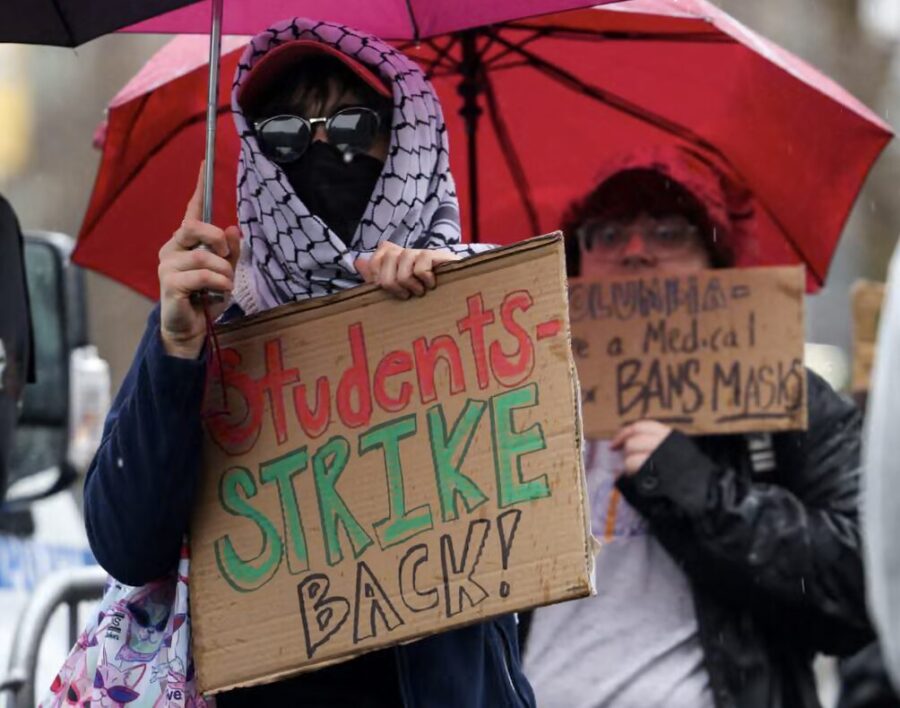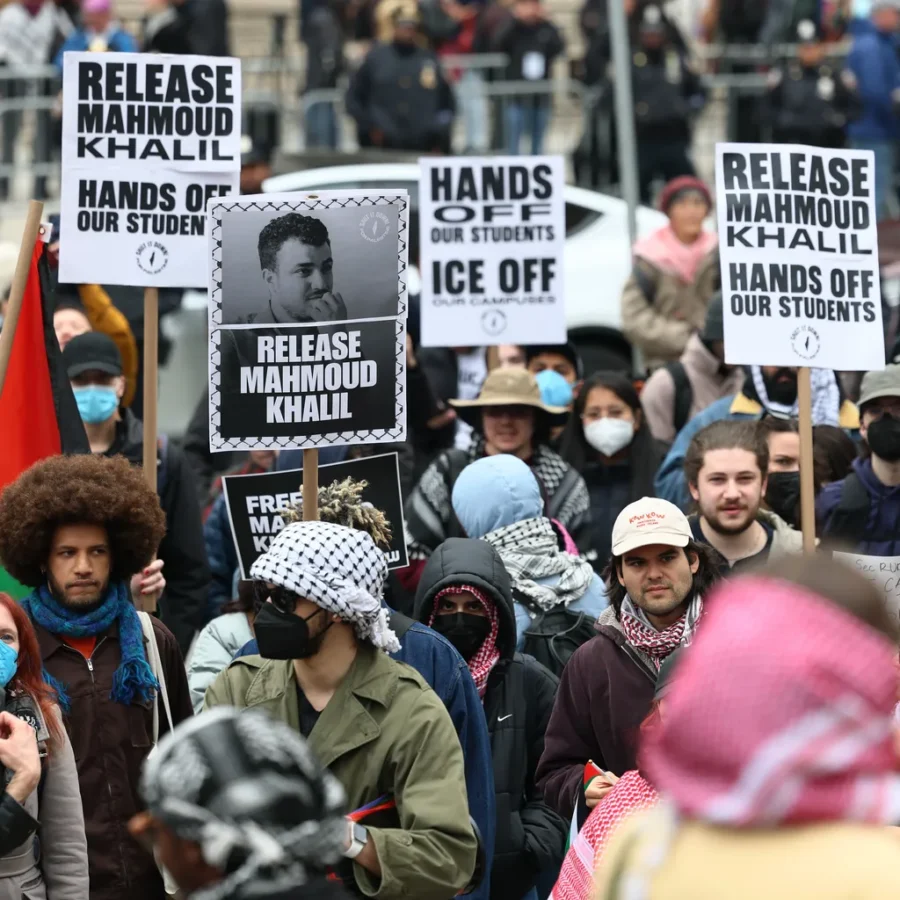
By Eloise Goldsmith, Common Dreams, Used with Permission
Columbia University received a wave of criticism on Friday after it agreed to a number of demands from the Trump administration as part of negotiations over $400 million in federal grants and contracts that the Trump administration had pulled due to the school’s alleged “inaction in the face of persistent harassment of Jewish students.”
The school agreed to a ban on masks and to appoint a senior vice provost with broad power to oversee both the department of Middle East, South Asian, and African Studied and the school’s Center for Palestine Studies, according to the Wall Street Journal, which first reported the news. Also, Columbia has hired over 30 “special officers” who will have the ability to remove individuals from campus and arrest them, per the memo from the school announcing the update.
On Friday evening, writer Ross Barkan wrote on X, “I confess I don’t get Columbia folding. Don’t they have an endowment worth many billions? Very rich alumni? Alumni who hate Trump? They could do a massive ‘resistance’ fundraiser to make up for lost federal dollars. Very odd and very weak.” Others echoed this sentiment.
“Columbia’s capitulation to fascist government intervention is so severe when you really look at the details,” wrote Nour Joudah, an assistant professor at the University of California, Los Angeles, on X. “This is pathetic.”
Leaders at Columbia’s Knight First Amendment Institute expressed sadness. “The administration held up the university at gunpoint, but I can’t help but feel that Columbia has lost something it may never regain,” wrote the litigation director at the Knight Institute, Alex Abdo, on Friday.
Jameel Jaffer, executive director of the Knight Institute, wrote on Bluesky that it is “a sad day for Columbia and for our democracy.”
The episode highlight’s the Trump administration’s escalating scrutiny of higher education.
In February, U.S. President Donald Trump signed an executive order with the purported aim of rooting out antisemitism on college campuses, and has vowed to go after foreign-born students who have engaged in pro-Palestine protests, which he has deemed “anti-American activity.” The Department of Education—which the Trump administration is endeavoring to shut down—has also launched investigations into dozens of universities over alleged “race-exclusionary practices.”
But Columbia has so far been at the center of the administration’s feud with universities. In a March 7 press release, members of Trump’s Joint Task Force to Combat Anti-Semitism announced the cancellation of $400 million, and a day later immigration agents arrested a recent Columbia University graduate who played a major role in pro-Palestine demonstrations last year. The arrest of Mahmoud Khalil, a legal permanent resident, has been widely decried.
On March 13, the Trump administration sent a letter to Columbia University Interim President Katrina Armstrong outlining a series of steps that Columbia must comply with in order to maintain a “continued financial relationship” between the school and the government.
Among the nine demands was a call for disciplinary proceedings for students involved in last year’s Gaza Solidarity Encampments and occupation of Hamilton Hall. The same day Columbia received the letter it issued expulsions, multi-year suspensions, and temporary degree revocations for students involved in the Hamilton occupation.
A senior administrator at Columbia told the Journal that the university had considered legal challenges to resist the demands, but decided that the federal government had too many ways to take back money from the university. Columbia has an endowment of about $15 billion, though according to the outlet it would not “take long for it to cease to operate in any recognizable form without government money.”
“Additionally the school believed there was considerable overlap between needed campus changes and Trump’s demands,” according to the Journal.
Bruce Gerencser, 68, lives in rural Northwest Ohio with his wife of 47 years. He and his wife have six grown children and sixteen grandchildren. Bruce pastored Evangelical churches for twenty-five years in Ohio, Texas, and Michigan. Bruce left the ministry in 2005, and in 2008 he left Christianity. Bruce is now a humanist and an atheist.
Your comments are welcome and appreciated. All first-time comments are moderated. Please read the commenting rules before commenting.
You can email Bruce via the Contact Form.

